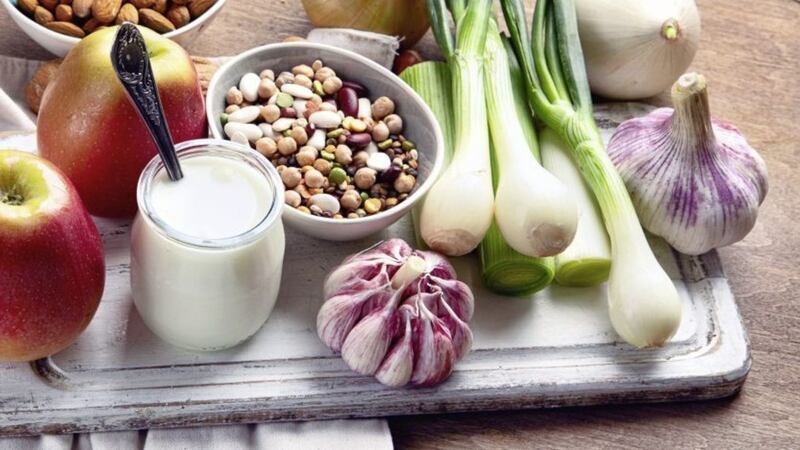BY NOW most of us are making an effort to wash our hands more regularly and some of us have been stockpiling toilet rolls, hand sanitiser and pasta in case of self-isolation. But what else can we do to help support our immune system and build our defences against coronavirus?
:: A healthy immune system
Our bodies have an impressive artillery of immune mechanisms to prevent us getting sick. When we meet a bug that our body doesn’t recognise, our skin is the first line of defence that prevents the micro-organism getting in. Apart from the physical barrier, our skin also has its own microbiome to help support and protect us.
The mucus membranes lining our nose and mouth are lined with epithelial cells that produce a weaponry of antimicrobial and antiviral substances to kill off any new invader – snot is a very important part of our immune defence!
If the bug manages to get past these barriers, then we have different types of immune cells to help combat the invader. White blood cells like macrophages that gobble up anything that shouldn’t be there, and lymphocytes that carefully target the new invader and remember if it tries to attack again mean that we are well adapted to deal with an invasion.
The bugs that make up our gut microbiome are now well known to be an important part of our immune system too, so eating foods to help support a healthy balance is key.
Of course, a healthy diet and lifestyle are essential to help ensure our immune defence army is ready and armed to face anything that tries to make us sick. From colds and flus, to the coronovirus, the more effective our immune system is, the less severe our symptoms are likely to be.
What we do know about this new virus is that older people and those who have underlying health issues are the most vulnerable but we all have a responsibility to help reduce the spread of infection as much as possible.
Handwashing and good personal hygiene are the first line of defence but here are a few other suggestions that might be helpful.
1 Get your five a day – eat at least 5 portions of fruit and vegetables every day to ensure you have a healthy balance of vitamins, minerals and antioxidants to help support your immune system. Foods rich in carotenoids are important for our respiratory system and those mucus membranes I was telling you about, so make sure you have dark green leafy vegetables, and orange coloured fruit or veg every day.
Purple and red-coloured foods like berries, beetroot and red onion are also a powerful source of antioxidants.
2 Cut back on sugary foods and drinks as a high-sugar diet has been shown to supress immune function. Switch to lower-sugar alternatives, or have smaller portions of the sweet stuff to start with, before cutting out completely.
3 Keep a healthy balance of gut bacteria by increasing your intake of fibre-rich foods like vegetables and fruit, pulses, nuts, seeds and wholegrains. Also consider including some probiotic foods like live/bio yoghurt, sauerkraut, kimchi, kombucha or kefir.
4 Include some daily exercise. Our lymphatic system is an important part of immune function and we need to move our body to help keep it strong. If you are older, then gentle forms of exercise like walking or stretching are ideal. Anything is better than nothing. If you are already fit and active, don’t overdo it. Excessive exercise can deplete our immune function.
5 Rest and relaxation is important for immunity, as stress can make us more prone to infections. Do something to help you relax – from arts and crafts, to yoga and meditation, make rest an part of your daily routine.
6 Avoid alcohol and smoking, both of which negatively affect our immunity.
7 Get a good night’s sleep to help your body repair.
:: What about supplements?
There is some evidence to suggest that vitamin C along with zinc and elderberry has anti-viral properties. At this time of year, it is also a good idea to take a vitamin D3 supplement too – vitamin D is important for our white blood cells.








